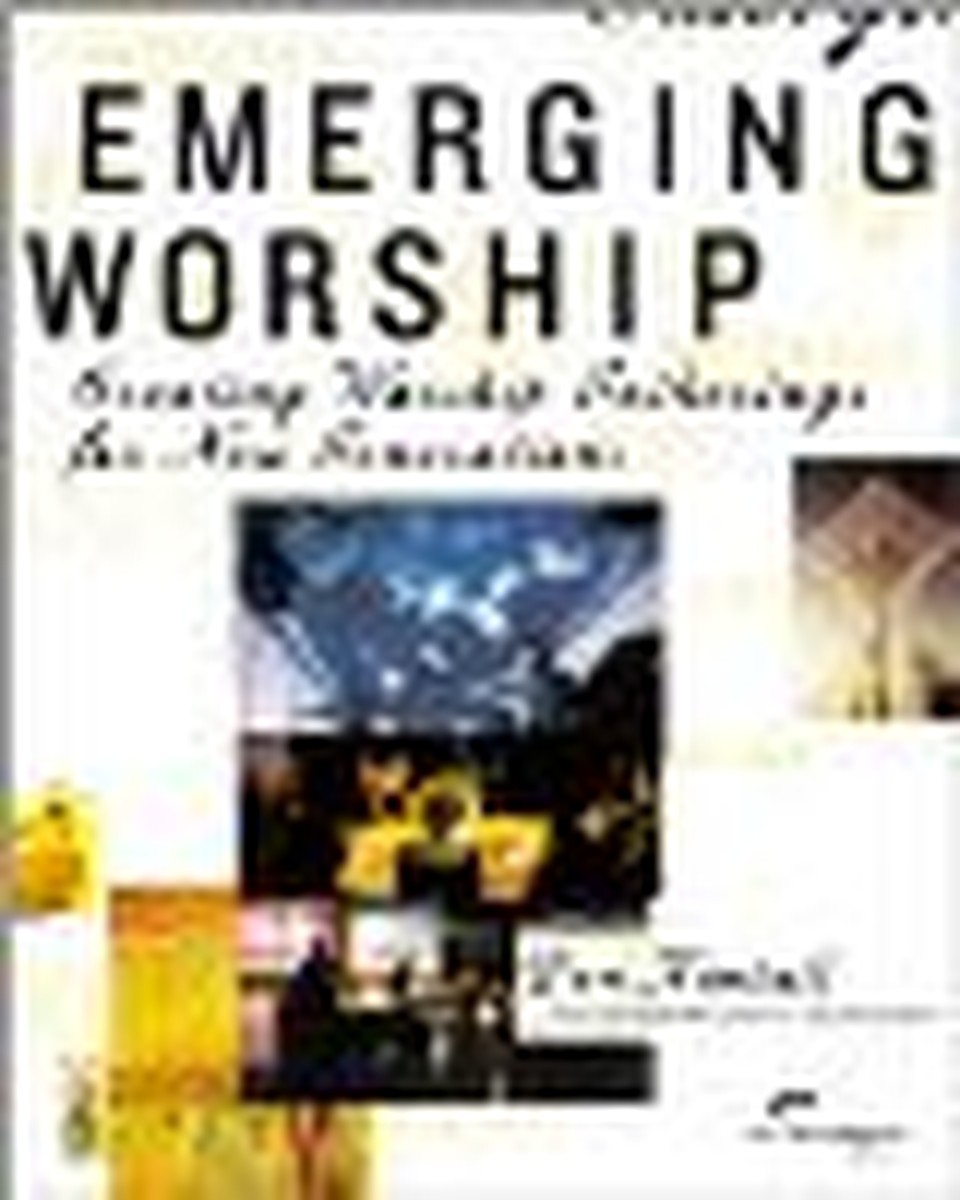Create a Worship Gathering for Emerging Generations

The 18- to 35-year-old generation is missing from many churches today - even from popular megachurches that offer contemporary music and plenty of programs geared toward young adults.
As the new millennium unfolds, churches need to be creative to connect with members of emerging generations. What worked 10 or even five years ago may not work today.
If you and others at your church have the courage to pioneer new forms of worship that resonate with today's emerging generations, you'll have a powerful impact on the future.
Here's how you can create a worship gathering for emerging generations:
Be open-minded. Understand that you'll need to completely re-think the ways you worship to successfully engage young adults. Remember that forms of worship have changed throughout biblical and church history, and acknowledge that change can be healthy. Ask God to give you a passion for emerging generations that motivates you to do whatever it takes to reach them. Know that Scripture, which is living and active, should guide your decisions - not just denominational traditions. Be willing to take risks and make sacrifices so God can breathe new life into your worship.
Break free from a consumer mentality. Realize that a worship service is not about God's service to people, but about people's service to God. Know that it's not a spiritual gas station for your congregation to go for a fill-up to fuel them for the coming week. Instead, it should be a time when each person present offers his or her love to God and other people. It's meant to be the weekly celebration of a continuous lifestyle of worship that focuses on growing and serving. Let your congregation know that you want them to be more than just observers. Encourage them to fully participate in and contribute to worship gatherings. Remind yourself of your church's basic mission - to make disciples of Jesus - and keep that mission paramount in all you do. Build a strong network of small groups that meet during the week to help your congregation grow beyond just "doing church" on Sundays. Let people know that your church is a family of people, not a building.
Be humble. Don't let struggles for power and control derail God's plans for fresh worship at your church. Pray for humility for yourself and all the leaders in your church. Rather than trying to prove something about yourself or your church, seek simply to serve God however He leads you.
Get to know unchurched people from emerging generations in your area. Conduct a city- or county-wide survey to learn the demographics of local young adults who don't currently attend church. Seek to understand the group you're trying to reach.
Plan well. Make prayer and developing a prayer team your two top priorities. Evaluate your local mission field and context. Select a vision-based team that will serve in their areas of giftedness (consider including your youth pastor). Determine which of your values are different from those of the rest of the church.
Ask 10 critical questions before you start a new type of worship gathering in your existing church: "What is the holistic plan for this new worship gathering as it relates to the whole church?", "What happens in terms of spiritual formation and evangelism beyond the worship gathering?", "What is the role of the senior pastor and elders or board?", "What will be the specific points of integration between the new worship gathering and the rest of the church?," "How will intergenerational relationships be encouraged and developed?", "How will exiting children, youth, college, and singles ministries in the existing church be impacted?", "How will you keep healthy lines of communication between the senior pastor and the rest of the church leadership?", "What is the strategy and timing for research, team building, and launching?", "If this is a mission designed to reach non-Christians, how do you keep it from simply becoming a 'happening thing' for those who are already Christians in your area?," and "How do you measure success?".
Take a multisensory approach to worship. Realize that emerging generations want worship that engages all their senses. They want to see beautiful artwork and interesting media images. They want to hear excellent music. They want to taste freshly baked bread during communion (or other things at other times - such as salt if you're discussing how Jesus wants Christians to be like salt in the world). They want to smell the fragrances of candles or incense as they pray. They want to touch things that help them understand the day's message - such as stones if you're discussing how the Israelites gathered stones from the Jordan River to remember God's faithfulness, or water if you're discussing how Jesus is the Living Water.
Create a sacred space for worship. Don't worship in a plain area that looks simply like an auditorium or conference room for a business. Create a beautiful, welcoming space that promotes a sense of mystery and wonder of God and a sense of community among the people who worship. Understand that emerging generations crave reminders of Christianity's ancient roots. Use beautiful crosses and art that portrays the faith's history, as well as more contemporary forms of art. Display Christian art from different cultures around the world. Include artistic photography that reflects the personality and culture of your church.
Use eclectic styles of music. Incorporate various musical styles into your gathering - from ancient hymns set to a modern beat to global and ambient music. Encourage those in your congregation with musical talent to write original songs to perform in worship.
Encourage free motion. Let your congregation move around to express their worship however they desire - such as by kneeling, dancing, raising their hands to praise God, or lying prostate on the floor.
Set up prayer stations. Have worshippers visit various tables throughout the room to read Scripture cards, meditate on their message, and pray with other people. People can also express their worship through painting or journaling at prayer stations.
Preach sermons that invite people into kingdom living by telling God's story. Rather than simply transferring biblical information to the congregation, preachers should focus on telling God's story and inviting listeners to take part in it. Ideally, different people can share the task of preaching so the focus isn't just on one person. Whoever is preaching should stand or sit near the congregation - not up on a stage or platform - and communicate clearly that he is a fellow worshipper who struggles in the journey of life just like everyone else. The preacher should use humor whenever possible, while still presenting a profound message. The preacher should also use large chunks of Scripture to put verses in context rather than simply pulling in individual verses from here and there. The preacher should be willing to dialogue with the congregation. Those in the congregation should have an opportunity to speak at appropriate times during the service at an open mic.
Revive ancient spiritual practices. Know that emerging generations want to sense Christianity's long history in their worship. Integrate liturgy, ancient spiritual disciplines (like walking a labyrinth), Christian seasons (like Advent and Lent), and Jewish roots (like the Passover Seder meal) into how you worship today.
Allow plenty of time for prayer. Don't rush to end the service by a certain time. Give people ample time to quiet their hearts and connect with the Holy Spirit in prayer.
Make communion a central part of worship. Understand that emerging generations have a passion for the power of the Lord's Supper to help them encounter God. Take communion every week, not just once in awhile. And don't take it in a nonchalant manner. Give people time to reflect, pray, confess sin, and offer thanksgiving to God before communion.
Encourage all generations to worship together. Invite older adults and children to be a part of your alternative worship gathering alongside 18- to 35-year-olds. View your gathering as an integral part of your whole church. Encourage people of all ages to interact, learn from each other, and build meaningful friendships.
Keep your focus where it belongs. Make sure you remember why you're designing the best worship gatherings possible. Don't let your passion for technology, music, or any other aspect of the gatherings overshadow your passion for Jesus. Remind yourself that it's not about you or your church looking good; it's about offering Jesus the best you have. Instead of striving to offer people a fun experience or principles about living a better life, strive to help them connect with Jesus. Don't let the time or money you spend on creating a great worship experience cause you to neglect serving your community and the larger world. Constantly pray about how God wants you to use your resources to accomplish His mission for your church. Always keep Jesus as your primary focus.
Adapted from Emerging Worship: Creating Worship Gatherings for New Generations by Dan Kimball, copyright 2004 by emergentYS. Published by Zondervan, Grand Rapids, Mich., www.zondervan.com.
Dan Kimball is pastor of Vintage Faith Church in Santa Cruz, California, a missional church designed for the emerging post-Christian culture (www.vintagefaith.com). He's author of The Emerging Church: Vintage Christianity for New Generations (emergentYS) and a contributor to numerous titles and periodicals. Dan also serves on the emergentYS board and is a frequent speaker at Youth Specialties' training events.
Originally published January 13, 2005.







